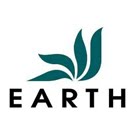Thursday, November 26, 2009
Thankful for EARTH
Happy Thanksgiving to everyone from the EARTH University Foundation! Let's be thankful for sustainable agriculture, EARTH University, and everyone who is helping to make the earth a better place! It's incredible that the world is moving in a green direction, now more than ever. It's no doubt that EARTH University is a major contribution to the world. I'm truly thankful for EARTH University and what they are doing for the planet!
Tuesday, November 24, 2009
Chase Bank Challenege
Friday, November 13, 2009
What's Going On
 EARTH University, an institution of higher education focusing on sustainable agriculture, has a long relationship with the U.S. Agency for International Development, which makes this news exciting. Find the article at this website.
EARTH University, an institution of higher education focusing on sustainable agriculture, has a long relationship with the U.S. Agency for International Development, which makes this news exciting. Find the article at this website.
Follow EARTH University student Johanny Arilexis Pérez Sierra, class of 2009, on her blog. She is currently doing her internship at the University of Florida. Follow her at blog here!

Zachary Shahan, a writer for the blog Eco Wordly, recently posted an article about the new report, "The Economics of Ecosystems and Biodiversity". In his report, Shahan reiterates that conserving our environment is not only important to our future but also our economic success as well, “As the report says: ‘The failure of markets to adequately consider the value of ecosystem services is of concern not only to environment, development and climate change ministries but also to finance, economics and business ministries.’” I found his article very interesting! You can find it here.
Monday, November 2, 2009
What "Sustainability" Means to EARTH

The Tico Times (a Costa Rican newspaper) ran a great story on EARTH, called "EARTH University Works For the Planet" by Adam Williams. Read more to find out where your Cause dollars are going.
Williams also sat down with Walter Robb, co-president and chief operating officer for Whole Foods, and discussed the importance of sustainable practices and the continued relationship between Whole Foods and EARTH University. Here's how Walter Robb defines sustainability for EARTH:
There is no single definition to what [sustainable agriculture] means around the world. It’s very difficult to grow organic bananas in the tropical rainforest because of the moisture and so forth. But EARTH has done everything right. For example, they recycle the plastic on the banana trees; they put barriers in the field to stream water; they put organic fertilizer made from banana waste itself back on the crops. They go over and above the organic standard in many ways. So their definition of sustainable consists of things like paying workers a fair wage. They put latrines in the field, and they are building community centers where the workers live. SO, their definition of sustainable is what is good for the worker and good for the community… So what is the difference between sustainable and organic? The difference is that there are times when they have to use some chemicals to fights off pests, but they are doing so much more than that. When you look at the total picture, you are getting a truly sustainable product.
Here are some pictures of banana farming and examples of how EARTH produces sustainable products:

The banana farms at EARTH University, located in the Caribbean slope town of Guácimo.

Students and workers are not allowed to use cars while on campus.

This anaerobic digester is the main fuel source for the campus cafeteria. Anaerobic digestion involves a series of processes in which microorganisms break down biodegradable material in the absence of oxygen. This process produces methane gas, which can be used as an energy source.

EARTH's banana farm is the only one in the country that doesn't make workers carry bananas from the fields to the packing warehouse. Instead, they use an aerial train.

Bananas are covered in plastic bags to avoid contact with insects. EARTH does not use chemical pesticides in the bags but rather a new organic product made of garlic and pepper.
Photos by Ronald Reyes / Tico Times
Subscribe to:
Comments (Atom)





